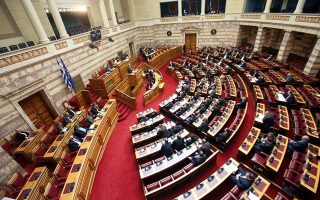Regling says Greece will remain linked to ESM

Greece will be monitored more closely by the European Stability Mechanism (ESM) and the other institutions after its bailout ends six days from now compared to other countries that emerged from rescue programs, according to ESM chief Klaus Regling.
In an interview with Spiegel Online, Regling said the eurozone crisis is now long over and that the end of the ESM program for Greece on August 21 is “the epilogue.” But, he said, “Athens will remain closely linked to the ESM,” adding that with 204 billion euros in rescue loans, “we are Greece’s biggest creditor.”
“Given our long maturities and low interest rates, Greece saves around 12 billion euros in debt servicing costs on its budget every year,” he said.
His comments confirmed that Greece’s situation is different to that of countries like Portugal, which the government is so fond of comparing to Greece.
According to Regling, the crisis in Greece was sparked after it joined the eurozone and wages and salaries rose much faster than productivity.
“As a result, Greece’s economy lost competitiveness compared to other euro countries. In addition, there was a weak public administration with sluggish legal implementation, slow courts, and an underdeveloped land registry,” he explained, noting that when it became clear in 2009 that Athens “had prettified its deficit figures, the country abruptly lost investors’ trust.”
Regling acknowledged that it would be “arrogant” to say the ESM did everything right in Greece.
“Private sector participation, for example, in which private holders of Greek government bonds had to forgo more than 100 billion euros in 2012, should have come earlier,” he said, adding, however, that “in principle, we acted correctly: following the example of the IMF, the euro countries granted rescue loans, which were tied to strict reform requirements.”
He insisted that Greece will be on the right track if reforms continue. “The other program countries, namely Portugal, Ireland, Spain and Cyprus, are already success stories,” Regling said.
“The reforms in Greece and elsewhere, the better economic coordination in Europe, the creation of banking union and the ESM have all made the monetary union more resilient.”





